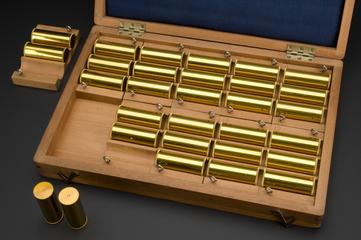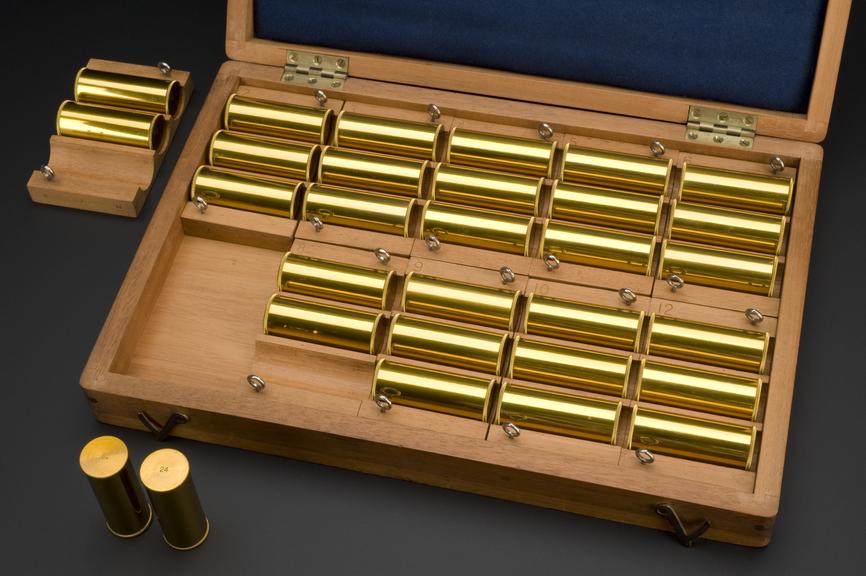
Case for weight perception set
1893


Set of cylinders for testing individual's perception of weight, cased, by Cambridge Instrument Co., Cambridge, 1893
An individual’s perception of weight was tested using this set of cylinders. It was designed by Francis Galton (1822-1911). The brass weights are identical in size and sit in a mahogany box.
The weight perception test was one of a series devised for Galton’s ‘anthropometric laboratory.’ Anthropometry is the scientific study of the measurements and proportions of the human body. Galton also founded eugenics, describing it as the science of using controlled breeding to increase desirable inherited characteristics. This ‘science’ became controversial. It was later marginalised through its association with the genocidal activities of Nazi Germany. The test was made by the Cambridge Instrument Company. The firm was founded by Charles Darwin’s nephew, Horace. Galton was Darwin’s half cousin.

1893
1893
1893
1893
1893
1893
1893
1893
1893
1893
1893
1893
1893
1893
1893
1893
1893
1893
1893
1893
1893
1893
1893
1893
1893

